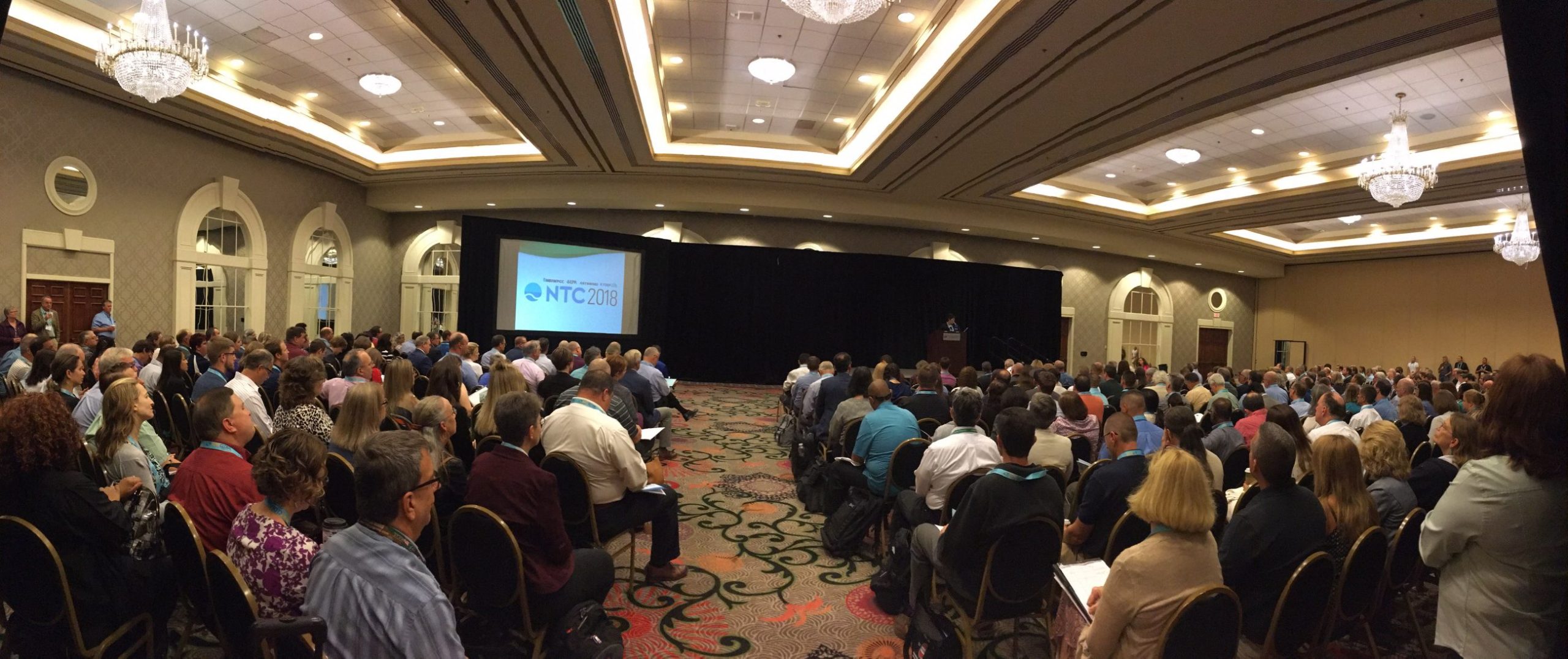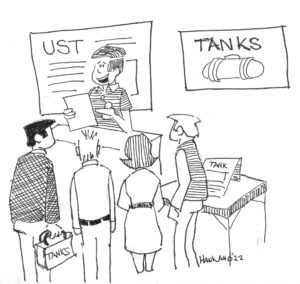Making the Most of the National Tanks Conference
“Think Tank” with Mahesh Albuquerque

How NTC Has Benefited My Career
I heard it all started back in November 1988, when around 250 state UST regulators convened in Santa Fe, New Mexico for a national workshop hosted by the EPA Office of Underground Storage Tanks. During that two-day workshop, they engaged in panel discussions on all things tanks-related, from corrective action to corrosion. That meeting was so impactful that when it ended, they decided to convene again the following year, and so what we now know as the National Tanks Conference (NTC) came into being.
I attended my first NTC, or what was then called the “Annual UST/LUST National Conference,” in 2005 in Seattle. Little did I know then that my experience at that conference, and all the other NTCs I attended over the next decade, would have such a profound impact on shaping my career at the Colorado Division of Oil and Public Safety (OPS). Ever since I began working at OPS in 1999, I would hear great things about the NTC from others in our program and at our Region 8
In those days, we usually sent only our managers or supervisors to the NTC, so when I finally got to go in 2005 as a new field inspection supervisor, I felt like I’d hit the jackpot. I remember scouring through the agenda sessions and speaker bios on the NEIWPCC website weeks before the conference. There were pre-conference workshops and three main session tracks: prevention, cleanup, and policy. Each track featured interesting, informative sessions led by some of the field’s most prominent experts. There were so many sessions and topics, and some that overlapped, so I began planning and prioritizing what I wanted to attend.
Being there was even more amazing than I had imagined. The NTC brings together hundreds of UST/LUST professionals — including tank inspectors; cleanup specialists; state, tribal, and territorial employees; federal regulators; and industry representatives — to network and learn about emerging issues, policy, equipment, and many other topics. It was great to see familiar faces of regional colleagues and meet others from across the country, and to strengthen these friendships over meals and drinks over the course of the week. When you get a group of like-minded people together, it is amazing to feel the energy and enthusiasm in conversations, over topics like Significant Operational Compliance metrics, or, developing regulations to address the UST provisions in the Energy Policy Act of 2005.
The UST/LUST Expo, held in conjunction with the conference, featured exhibits of tank projects, product materials, and program tools, some of which were innovative and had not yet made their way into our state. I also sat in and observed the important work of the National Workgroup on Leak Detection Evaluations (NWGLDE). I left that conference feeling rejuvenated, proud, and optimistic about my work in helping continue the progress made in protecting human health and the environment from tank releases. I also left the Emerald City looking forward to next year’s NTC in Memphis, Tennessee.
How could one not be in a city like Memphis and with a pre-conference networking event at B.B. King’s Blues Club? My experience at the 2006 NTC was even better than the last, especially as we were in the midst of revising our regulations to address the UST provisions in the Energy Policy Act, and the session topics and hallway conversations helped inform me how best to proceed. I benefited so much from networking that year that I left vowing to become more engaged in the conference, and with the Association of State and Territorial Solid Waste Management Officials (ASTSWMO) and NEIWPCC.
When NEIWPCC put out a call for abstracts in 2007, I responded and was thrilled to be selected to present on prioritizing inspections. NEIWPCC reimbursed travel expenses for speakers, so we were able to leverage that to bring other staff to the conference. With more than 600 attendees and 55 exhibitors, the NTC in Memphis was huge and could only be topped by going in San Antonio, Texas.
Over the next several years, I attended NTCs in Atlanta, Sacramento, Boston, St. Louis, Denver, Phoenix, and Louisville, each time taking along more and more of our tanks program staff, many of them as presenters. Repeatedly, we found the learning and networking opportunities to be priceless for our staff. The thought-provoking presentations helped us shape initiatives and policies to improve our program, and we in turn have done presentations on some of our own initiatives in Colorado. It has helped our professional careers advance.
Food for Thought for New Attendees
I believe this year’s NTC is going to be amazing, with four pre-conference workshops and four simultaneous tracks of sessions, social events, and receptions. It’s going to be special, since we haven’t had an in-person NTC since we last got together in Louisville in 2018. I know a virtual conference was being considered during COVID, and I am glad we did not do one, as it wouldn’t do justice to the NTC experience. One of the most important features of this conference is one that does not appear on any agenda: the in-person networking. Now more than ever, in these times of the “Great Retirement,” where older workers are leaving the workforce at higher rates than before the pandemic, networking enables you to transfer knowledge, learn and grow, and achieve goals in your personal and professional lives.
The NTC can be an overwhelming rush of presentations, conversations, and potential meetups, and it can be tough to know where to focus your time. Many of you have been to more conferences than I, but for those attending for the first time I have a few suggestions on how to get the most of your experience at the NTC.
- If you are an introvert like me who hates small talk, change your mindset to focus on how networking is good for the growth, development and advancement of your career.
- Review the agenda well in advance to choose which sessions to attend. Pick sessions that draw you because of a content goal, meaning the talk will be educational, or because of an interpersonal goal, meaning you want to meet or support the person who is presenting.
- Attend the social events and receptions, visit the trade show booths, and go out for coffee, meals or drinks to create networking situations in which you feel comfortable. Try not to spend all your time with coworkers you see every day; meet new people.
- Be curious and engaged in the conference. Presenters love it when you show up at their sessions, ask questions and share your opinions. Most people do, especially people at conferences who probably have the same interests as you.
- Volunteer to assist on EPA, ASTSWMO and NEIWPCC taskforces, committees or workgroups as opportunities arise, and do not forget to thank them for hosting the NTC.
I hope you enjoy this year’s NTC, have productive conversations, and find it to be as impactful in shaping your career as it has been for me. Ironically, it has shaped mine so much that I have to be at another professional event, and for the first time since 2005, I will miss NTC. I am grateful however, that we will have a strong Colorado OPS contingent in Pittsburgh, focused on ways to continue the progress made in protecting human health and the environment from tank releases. I hope you get to meet some of them.
Mahesh Albuquerque is Director of the Colorado Division of Oil and Public Safety. He can be reached at mahesh.albuquerque@state.co.usa

